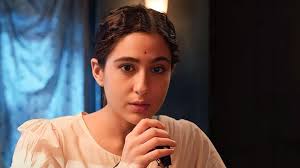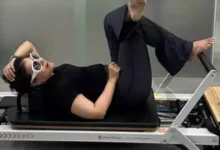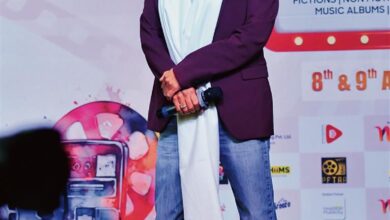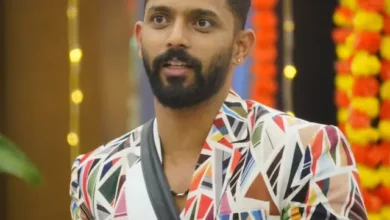Review of the film “Ae Watan Mere Watan”: prosaic patriotic drama
Every other week is a history lesson for cinema critics, as Lok Sabha elections draw near. Either hagiographies or hack jobs are all around us. Depending on your taste, there are both softcore and hardcore biographies of nationalist figures available for the theatrical masses: Main Atal Hoon and Swatantrya Veer Savarkar. Here it is, Ae Watan Mere Watan, an assembly-line produced homage to our independence heroes, for the ostensibly intelligent OTT spectator. It is a mashup of corny concepts from every Independence struggle movie imaginable. A movie is about a treatment, not a subject. However, it seems like Ae Watan Mere Watan is willing to be simply another ordinary biopic.

The film’s creators claim that the film is based on the life of Usha Mehta, who organized the 1942 Quit India Movement by hosting the Secret Congress Radio. Sara Ali Khan’s character Usha is enamored with Mahatma Gandhi’s ideals. Her father, a judge in the Raj, is an anglophile, and his views are quite different from this. There are a lot of people in the nation who want to fight the British once and for all, and Usha, along with her college friends Kaushik (Abhay Verma) and Fahad (Sparsh Shrivastava), harbor inquilab (revolt) views. After Gandhi and other Movement leaders were arrested by the British as part of their crackdown, Usha and some friends organized a radio broadcast to spread messages of revolt and solidarity. They repeat, “Karo ya maro (do or die),” in response to anything even somewhat startling.
Now, because Usha Mehta was eight years old when she went to a protest march, this may have been a deep dive into her mind. However, what we get is a trite scenario in which a little Usha sees a British soldier beating her instructor. “Vande Mataram” is all he says before passing out. There’s a single method in almost all sequences to convey how zaalim (cruel) the goras (white people) are. A British police officer even yells, “Get off me, you filthy Indian,” in one incident. You can tell that the arrival of the classic British baton is imminent when an elderly Usha is seen running with the tricolour flag. As the flag hits the dusty ground, Usha is struck first on her feet and then on her head. Patriotism yells on the screen.
The majority of period plays attempt to connect with the present by presenting events from the past. The topics of restricting free speech and mental control are only hinted at in Ae Watan Mere Watan. It’s just a textbook chapter on history condensed into bullet points. The acting is straight out of a school skit, the writing is atrociously stale, the images have been given a dusty, historical appearance using a sepia filter, and the narrative is predictable. I yawned when the movie was meant to excite me, laughed when it was supposed to move me, and almost got up from my chair when it was intended to captivate me.
Sometimes strong performances may save a drowning tale. In contrast, this is not the case in Ae Watan Mere Watan. Sara Ali Khan, who was the weakest link in last week’s Murder Mubarak, comes back to ham it up in the scenes. She is the most outrageous character in this OTT movie because she overemotes and overemphasizes. When Sara tries to be serious, there seems to be a little smirk on her face, like she’s laughing to herself. Maybe this is just me. She faces the biggest difficulties in this story of battle for independence. Although I was expecting Emraan Hashmi, who plays Ram Manohar Lohia, to save the day, he too becomes entangled in the absurd seriousness of the story. Before you know it, he’s giving motivational speeches with odd connections to fire metaphors, like “The fire of freedom, the torch of freedom, the volcano of freedom” (Azaadi ki aag, azaadi ki mashaal, azaadi ka jwalamukhi).
AE Watan When it comes to the freedom fighter at its core, Mere Watan just scratches the surface. It is content to portray just one aspect of her character: a young, patriotic lady who stood up to her father, gave up her dream, and broke up with her partner in order to save her nation’s independence. Following India’s independence, the genuine Usha Mehta conducted an interview in her senior years to discuss the state of her homeland. She said that “India has built a good industrial base and survived as a democracy.” “But it’s still not the India we imagined.”






